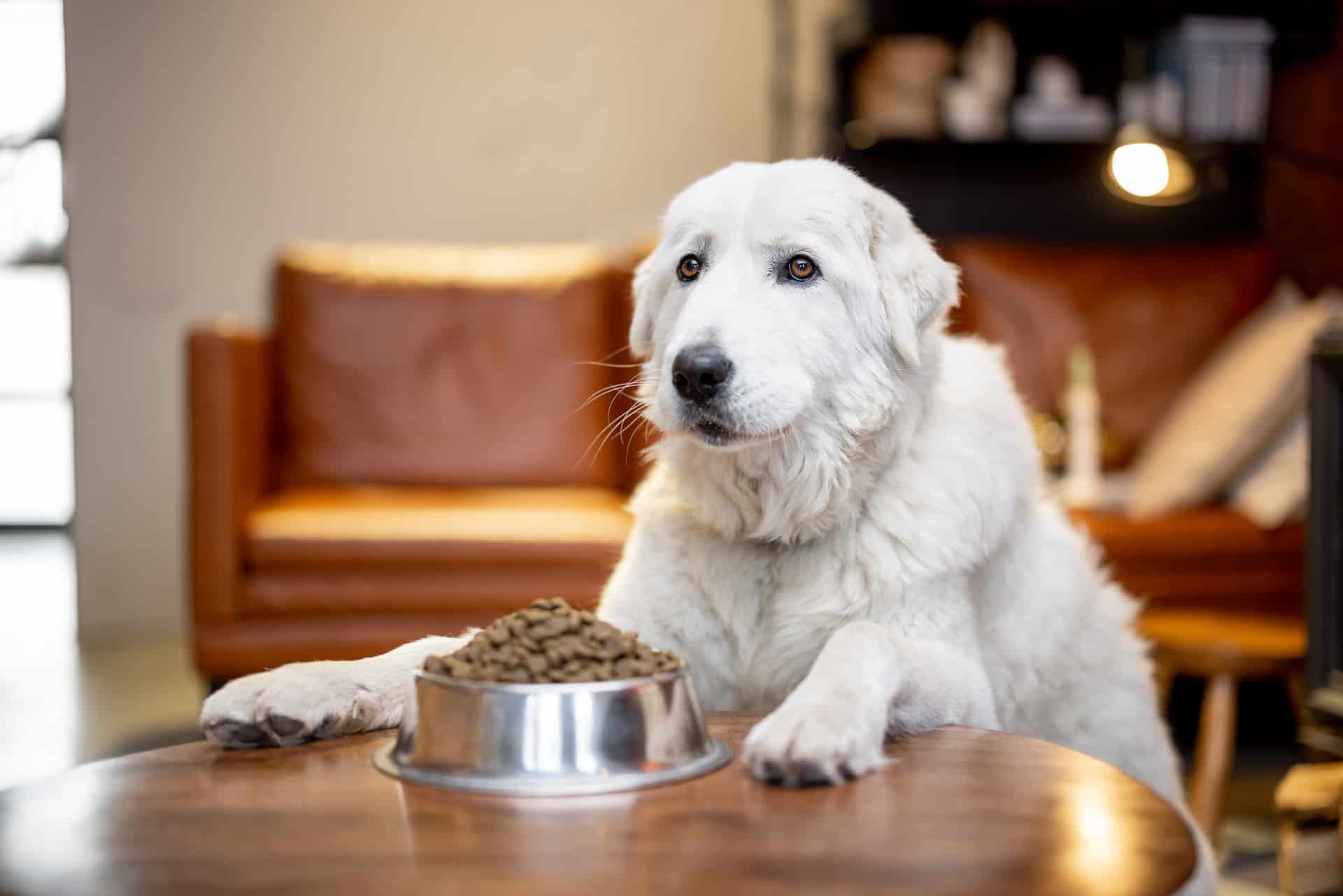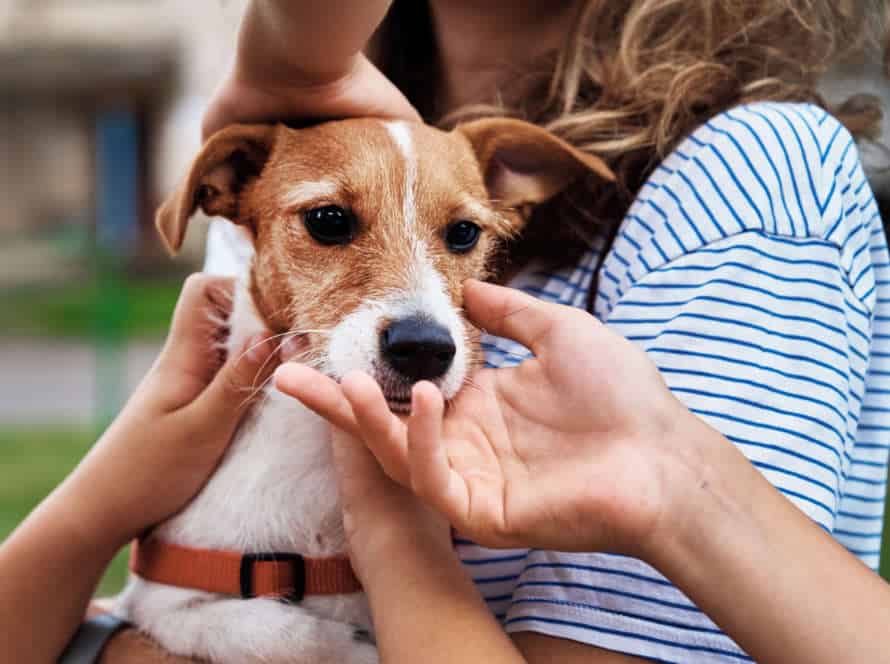A Comprehensive Guide to Feeding Senior Dogs
When our furry friends age, their diet needs change. So, adjust their feeding habits. Here’s what to do:
- Get senior dog food that has fewer calories and more fiber.
- Break meals into smaller, frequent bits.
- Carefully track their calories to avoid malnutrition or over-nourishment.
- Include fish oils and glucosamine to keep their joints healthy.
- Note any health conditions or dietary restrictions and choose food accordingly.
Plus, look after their dental hygiene with dental chews and regular teeth cleaning. With special attention to their diet and health, our senior dogs can enjoy life to its fullest!
Understanding Senior Dog Nutrition
Senior dogs have unique dietary needs! To keep them healthy and happy, it pays to tailor their diet. As they age, their nutrition should be adjusted. Here’s a guide on how. What nutrients do they need? How much should they eat? And when? All questions answered!
Nutritional Requirements for Senior Dogs
As dogs age, their nutritional needs change. To keep them healthy, they need:
- Protein: Lean meats, fish, and eggs are easy to digest.
- Fiber: Fiber-rich veg and fruits help digestion.
- Fats: Fish oil, flaxseed oil, and chicken fat for energy and joint health.
- Vitamins and Minerals: Senior-specific food with antioxidants and key nutrients.
By eating right, senior dogs can live long, healthy lives.
Dangers of an Imbalanced Diet
Imbalanced diets can cause serious health issues in senior dogs. Nutrition is key to keep aging pups healthy and at a steady weight. Figuring out senior dog nutrition can be tough, but guides are available to help pet owners make informed decisions.
Senior dogs need balanced diets with plenty of protein, fiber, and healthy fats. Plus, they require proper hydration. High-quality meat proteins, fiber-rich carbs, fruits and veggies, and healthy fats will help prevent illnesses such as obesity, diabetes, kidney problems, and heart diseases.
Read labels, avoid fillers, and chat with your vet. Don’t give your senior pup table scraps. Low-calorie treats are the way to go. Pay attention to their diet to keep them healthy and happy!
Creating a Feeding Schedule for Senior Dogs
Senior dog-feeding is tough. But you can make sure they’re nourished, with the right nutrition plan. A personalized schedule is the top way to keep your older pet healthy. In this guide, we’ll look at: why a feeding schedule’s so important, and tips for creating one.
Recommended Feeding Schedule
It is vital to create a feeding routine for senior dogs for them to get the proper nutrients and stay healthy. Here is a suggested schedule:
- Morning: Give a tiny portion of wet or dry food plus extra supplements such as glucosamine and chondroitin for joint health.
- Midday: Offer a light snack such as low-fat cottage cheese or boiled chicken to keep your senior dog’s energy levels up.
- Evening: Provide a bigger meal of high-grade wet or dry food with vegetables for vitamins and fiber.
- Late Night: Give a little treat, like a dental chew, to help look after oral health.
Tips to remember:
- Feed your elderly dog small meals more often throughout the day.
- Stay away from feeding your senior canine table scraps or people food.
- Keep a fresh supply of water at all times.
- Talk to your vet to make sure your senior dog’s exact dietary needs are met.
Recall that a balanced diet is essential for your senior dog to live a long and joyous life.
Feeding Options
Feeding senior dogs? Various options exist to guarantee proper nutrition and weight management. Here are some to consider:
- Dry kibble: Most common. Needs to meet AAFCO standards for nutrition. Look for kibble made for seniors.
- Wet food: Good for seniors who struggle to chew or have dental issues. Must be balanced and complete.
- Semi-moist: Convenient. Often high in sugar and preservatives.
- Homemade food: Nutrient balance a must. Consult vet first.
- Specialty diets: Some seniors may need a special diet. Talk to vet for best plan.
These options can be rotated or combined to provide variety and meet the senior dog’s nutrition needs. Work with your vet to create a feeding schedule that fits your dog’s individual needs.
Pro tip: Fresh, clean water always accessible for senior dogs.
Portion Sizes
Portion sizes for senior dogs are important. As they age, their metabolism and diet needs change. Here are some tips to find the right size:
- Consider the age, weight, and activity level of your dog.
- Check the package for the recommended serving size for your dog’s weight.
- Divide the daily serving into two or three smaller meals.
- Monitor body condition and adjust portions to keep a healthy weight.
- Make sure there is fresh water available all the time.
By following these tips, you can create a feeding schedule that helps your senior dog stay healthy.
Feeding Tips for Senior Dogs
It’s vital to feed your elderly pooch! As your doggo grows older, their diet needs to change. Here’s the scoop on selecting the perfect grub, portions, and add-ons for your elderly canine. Let’s get started!
Food Type
It’s vital to adjust the diet of senior dogs to keep them in good health and spirits during their golden years. Here’s how:
- Buy top-notch, simple-to-digest senior dog food with ingredients that aid joint movement, brain health, and immunity.
- Instead of one large meal, offer smaller meals more often to ward off digestion issues and keep energy levels even.
- Control portions and consult a vet to work out the right amount of food for your pup’s needs. Don’t overfeed, as too much weight can lead to health risks.
- Consider supplements like omega-3s, glucosamine, and chondroitin to help joints.
- Provide plenty of fresh water during the day, particularly if your senior dog suffers from kidney or liver problems.
By heeding these tips, you can make sure your senior dog stays fit, content, and nourished in their golden years.
Frequency of Feeding
For senior dogs, you need to think about their dietary needs, health problems and food preferences. Here are some tips:
- Frequency of feeding: Feed them 2-3 small meals a day.
- Nutritional requirements: They need more protein, fiber and joint-supporting nutrients. Ask your vet for help in creating a balanced diet.
- Health conditions: They may require a special diet. Your vet can advise on this.
- Dietary preferences: As they age, their tastes may change. Try different foods, gradually.
By following these tips you can create a healthy, satisfying diet that meets their requirements.
Hydration Needs
Proper hydration is a must for senior dogs. It helps keep their organs, digestion, and thinking healthy. Senior dogs are more likely to become dehydrated due to some reasons such as decreased thirst and kidney problems. So, it’s very important to make sure they drink enough water and other hydrating sources.
Here are the hydration needs for senior dogs:
- Always provide fresh, clean water.
- Add moisture-rich foods like canned food and broth to their diet.
- Monitor their water intake.
- If you see signs of dehydration such as dry gums, laziness, and sunken eyes, talk to a vet and take the necessary steps like fluid therapy.
By following these hydration needs, you can maintain the health of your elderly pup.
Choosing the Right Senior Dog Food
Choosing the right food for your senior pup is important for their health. It should be a balanced diet, tailored to their needs. Consider the ingredients, calorie content, and nutritional content. This guide will provide an overview of picking the best senior dog food. Ensure your pup gets the nutrition they need!
Key Ingredients to Look For
Choosing the perfect food for your older pup is essential for their wellbeing. When selecting senior dog food, there are certain key elements to look for. These include:
- High-quality protein such as chicken, fish, or lamb.
- Glucosamine and chondroitin for joint support and preventing arthritis.
- Omega-3 and omega-6 fatty acids for maintaining a healthy coat and brain function.
- Antioxidants such as vitamin E, vitamin C, and beta-carotene.
- Probiotics to aid digestion and immune system function.
Be sure to keep an eye out for these key ingredients to keep your senior pup healthy and happy!
Senior Dog Food Brands
As dogs age, their needs change. And so, to keep their health and wellbeing, you must choose the right senior dog food. Here are some of the best ones:
- Blue Buffalo: High-quality, natural ingredients plus added vitamins and minerals for senior dog nutrition.
- Hill’s Science Diet: No artificial preservatives, colors, or flavors. Also, specialized formulas for senior dogs with joint or mobility issues.
- Wellness Complete Health: Natural ingredients plus glucosamine and chondroitin for joint support.
Remember to talk to your vet about your senior dog’s dietary needs before changing their food.
Homemade Food Options
Choosing food for your senior pup can be tough. To ensure they get the nutrition they need, why not try making homemade food? Here are some ideas:
- Protein source: Chicken, turkey, beef, or salmon with brown rice, sweet potato, or squash.
- Veggie option: Lentils with brown rice, carrots, or sweet potatoes.
- Anti-inflammatory: Cooked salmon, quinoa, or brown rice with turmeric and coconut oil.
It’s key to make sure your pooch’s homemade food has all the vitamins and minerals they need. This includes calcium, vitamins C, D, and E, zinc, and iron. Ask your vet for help to understand what your senior pup needs in their diet. Homemade food takes more effort, but it’s good for their health.
Pro tip: Before changing your pup’s diet, always consult your vet.
Special Dietary Requirements for Senior Dogs
Your pup is getting older! As they enter their senior years, their diet needs to switch up. Just like us humans, elderly dogs need a diet that is specifically for their health. It’s vital to give your senior dog the right nutrition to help them stay fit and content. In this article, we will discuss the dietary requirements elderly dogs need to live a happy and healthy life.
Health Issues that May Require Special Diets
As canines age, certain health issues may arise, needing a special diet to minimize the condition’s effect. Senior dogs, especially, experience many health issues that need a particular diet to reduce symptoms and improve their health.
Here are a few special dietary requirements for senior dogs:
- Joint problems: High-protein diets with omega-3 fatty acids to reduce inflammation are beneficial to senior dogs with joint issues.
- Kidney disease: Senior dogs with kidney problems require low-protein, low-phosphorus and low-sodium diets that lessen the tasks of their kidneys.
- Dental problems: Soft, wet food that’s easy to chew is advantageous to senior dogs with dental issues, reducing strain on their teeth.
- Obesity: Senior dogs who are overweight should consume foods with low calories and high fiber to aid weight loss.
It is essential to work with a veterinarian to identify the best diet for your senior dog’s needs. A balanced and nutritious diet can aid in your dog’s overall health, control their weight, and improve their quality of life.
Dietary Restrictions for Senior Dogs
As your pup grows older, they may require certain dietary restrictions to stay healthy. Here’s what you need to know:
- Lower calorie intake. Senior dogs’ metabolism is slower, so they’re more likely to become obese. Therefore, their calorie intake needs to be reduced.
- High-fiber diet. This can help regulate their bowel movements and prevent digestion issues.
- Low-phosphorous and low-protein foods. Their kidneys may not work as well as before, so these foods can help ease the strain.
- Easily digestible food. Senior dogs’ teeth are weaker, so they may have trouble breaking down certain foods.
- Consult your vet. Ask them for advice on the best diet for your senior dog, based on their individual needs.
Pro Tip: When choosing food, pick high-quality, nutritionally balanced dog food that meets their dietary requirements.
How to Create a Customized Meal Plan
Creating a meal plan just for your senior pup with special dietary needs can help them stay healthy and active in old age. Here are some tips:
- Speak to a vet to learn about any health issues or diet requirements.
- Pick a high-quality, age-appropriate food, or try homemade meals with lean proteins, carbs, and healthy fats.
- Calculate portion sizes accounting for weight, activity, and calories.
- Think about adding supplements or foods for joint health, digestion, and cognitive function.
A customized meal plan for your senior pup’s needs can help them live a comfy golden life!
Supplementing Senior Dog Diets
As your pup ages, it’s essential to make sure they’re getting the nourishment they need. Adding extra nutrients to their diet can offer plenty of advantages, like better joint health, more energy, and better digestion. In this guide, we’ll discuss the top supplements and how to seamlessly integrate them into your elderly dog’s diet safely.
Common Vitamins and Supplements for Senior Dogs
As pups age, their dietary needs shift. Senior pooches may benefit from vitamin and mineral supplements to support their wellbeing. Consider these common vitamins and supplements for your old pup’s diet:
- Glucosamine and Chondroitin to help joint health.
- Omega-3 and Omega-6 Fatty Acids to promote a healthy coat and skin and reduce inflammation.
- Probiotics to boost digestion and the immune system.
- Vitamins C, E, and A to help with cognitive function and immunity.
Speak to your vet to determine the ideal dosage and supplements for your senior pup’s diet. Balance and regular exercise are key for your pup’s health in their golden years.
How to Determine If Your Senior Dog Needs Supplements
Senior dogs need diets that suit their aging bodies. But, deciding if they need supplements can be tricky. Here are some tips to help pet owners decide if their senior dog requires supplements:
- Check for signs of discomfort or pain, like stiffness or trouble moving.
- Consult with a vet who understands your senior dog’s needs.
- Look at your pup’s diet. If it’s of good quality and meets their nutritional needs, they may not need supplements.
- Evaluate your dog’s health and wellness. See if supplements can help any health issues.
- If you choose to give supplements, select high-quality ones that fit their needs.
Risks of Over-Supplementing
Supplements can help senior dogs but too much can be risky. Here are some concerns:
- Toxicity – Too much of some vitamins or minerals can make a dog vomit, have diarrhea, even hurt their organs.
- Imbalance – Too much of one nutrient can disturb the balance of other nutrients and cause health issues.
- Interactions – Meds may not mix well with supplements and cause adverse reactions.
It’s best to talk to a vet before giving a senior dog any supplements. Pro Tip: Balanced and nutritious food is more important than supplements.
Conclusion
To wrap up, senior doggos require a different diet than puppies. Change your senior pup’s food to fit their special nutritional requirements. Think of their breed, size, and activity level before selecting the right food. Plus, if they have any medical problems, remember to adjust their diet! Finally, stay current on research and give them supplements when needed.
Recap of Key Points
To sum it up, when caring for elderly pups, there are some main points to bear in mind:
- Pick a superior senior pup food that meets their dietary needs and is easy to digest.
- Keep track of their weight and change their food intake appropriately to stop them from being overweight or malnourished.
- Add supplements or wet food to their diet if they have oral problems or reduced appetite.
- Keep away from feeding your senior pup human food that has too much fat or salt.
By heeding these tips, you can make sure that your senior pup stays healthy, content, and nourished in their twilight years.
Final Thoughts on Feeding Senior Dogs
To sum up, for senior canines, we must pay more attention to their dietary needs, nutrition and health. As they get older, their body and metabolism changes, making them more vulnerable to gaining weight, organ problems, and dental issues.
Some key elements to consider when feeding your senior pup are their breed, size, activity level, any existing medical issues, and what type of food you’re offering.
Fortunately, there are many quality pet foods available with formulas particularly made for senior dogs. These meet their nourishment needs and keep them healthy and content in their golden years.
Visit your vet and get regular check-ups for your senior pup to guarantee they remain strong and active longer. With the correct nutrition, care, and love, your senior dog can keep on aging gracefully and have more years with you. Pro Tip: To ensure your dog’s wellbeing and nutrition, choose high-quality pet food brands and only give age-appropriate food.
Frequently Asked Questions
What age is considered a senior dog?
A dog is considered a senior when they reach around 7 years old.
What kind of food should I give my senior dog?
A senior dog’s diet should consist of food that is low in calories and fat, high in protein, and packed with vitamins and minerals. Food specifically marketed for senior dogs may also include glucosamine and chondroitin to support joint health.
Should I switch to wet dog food for my senior dog?
It may be beneficial to switch to wet food if your senior dog has dental issues or trouble chewing, but it’s important to make sure the wet food still meets their nutritional needs.
How often should I feed my senior dog?
It’s recommended to feed senior dogs twice a day, but consult with your vet to determine the best feeding schedule for your dog based on their individual needs.
What human foods should I avoid feeding my senior dog?
Avoid feeding your senior dog any human food that is high in fat, sodium, or sugar. You should also avoid feeding them foods that can be toxic to dogs such as chocolate, grapes, onions, and garlic.
What are some signs that my senior dog isn’t getting the right nutrition?
Signs that your senior dog isn’t getting the right nutrition include lack of appetite, lethargy, weight loss or gain, and dull or dry fur. If you notice any of these signs, consult with your vet to adjust your dog’s diet accordingly.







